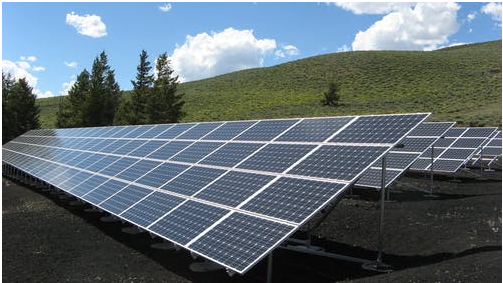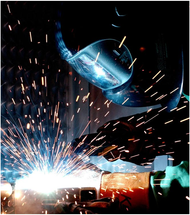What’s the Difference between Welding Cable and Battery Cable?
1st Dec 2021
While welding cable is sometimes used as battery cable, the two are not necessarily the same and are not necessarily interchangeable. Like all specialty electrical cables, both welding and battery cables are manufactured with specific traits that make them useful for the situation at hand.
Let’s peel back some of the layers of these two different types of cables, along with how, where, and for what applications they can be used.
What Is Welding Cable Used for?
Welding cables are used to power welding tools, such as electric arc welders. They are sometimes also used as a power line from generators or to power industrial equipment or machinery. Some welding tools require two power lines; one to supply primary power and another as a secondary.
Because industrial welding applications are often performed on large machines or stationary structures, many jobs must take place on-site, outdoors, and in the elements. As a result, welding cable must exhibit a number of traits to ensure its suitability for the task at hand.
For example, welding cables must be very flexible. Both welding tools and the structures or materials which must be welded can be very heavy or even completely stationary. This means that the welder often has to go where the welding must be done, and the cables must accompany him.
As a result, welding cables are made with copper conductors that are very finely stranded and have a high strand count. Much like marine battery cable, the higher the strand count, the more flexible the resulting cables are. Welding cables must maintain a high degree of flexibility so that they can accommodate the movements of the welder.

As an illustration, consider the 6 Gauge Premium Welding Cable we sell here at EWCS Wire. Though it is only .320 inches in diameter, it contains 259 strands of pure copper conductors. This helps it retain a high degree of flexibility so it can be used in unforgiving environments where it may need to bend and twist to reach the site of interest.
In addition to a high degree of flexibility, welding cables must also have a great deal of protection against the elements. Because they are frequently used outside, these cables must be resistant to sunlight, high and low temperatures, and moisture and precipitation. Many welding cables exhibit those traits and others.
Consider our collection of welding cables, which we offer in gauges ranging from 6 AWG on the lower end all the way up through 4/0 AWG on the higher end. They are rated to 600 volts, made in the United States, and feature 100% copper conductors.
In addition, they are coated with an exceptionally durable EPDM rubber coating, in both red and black (more on that in a moment). EPDM, more properly ethylene propylene diene monomer, is a very flexible, very durable copolymer that is both rugged and flexible.
It lends itself to use as welding cable insulation because it is strong, flexible, and resistant to a wide range of environmental factors. EPDM is resistant to ozone, ultraviolet light, and moisture, precipitation, and high and low temperatures. Our cables are rated between -50 and 105 Celsius.
In addition, and despite the fact that EPDM is produced from petrochemicals, our welding cables are also oil and gasoline resistant, which can be a big bonus on job sites where these agents might be present. It’s also physically tough, and abrasion-resistant, as well.
These features make welding cable all the more practical in harsh, unforgiving conditions where welding is required to make joints, complete structures, and more.
Now let’s take a closer look at how battery cables are used.
What Are Battery Cables Used for?
Battery cables are most commonly encountered in situations in which a device or a machine (such as a car or a golf cart) draws its power from energy stored in a battery. Frequently, battery cables are used as a lead for power between a battery and a starter.
Because they are stationary once hooked up to the battery, most battery cables are not required to have a particularly high degree of flexibility. In fact, that often feature PVC or cross-linked polyethylene (XLPE) insulation that is not particularly flexible.
Although the adverse environmental factors facing dedicated battery cables are different from those facing welding cables, it’s not always necessary for battery cables to maintain the same traits.
Battery cables must still be resistant to abrasion, as they are often located in close proximity to moving or vibrating parts that can damage their insulation. For the same reason, battery cables are most valuable when they are rated as highly resistant to high temperatures. Acid, alkaline, oil, and gasoline resistance are also valuable in battery cables due to the nature in which they are used.
Can Any Welding Cable Be Used as Battery Cable?
If the welding cable in question meets your requirements for amperage, voltage, wire gauge, and any other proprietary factors, then it may be possible to use it as battery cable.
For instance, our welding cables are considered acceptable alternatives for battery cables, and because they are also weather and UV-resistant, can be used as solar panel cable, also known as photovoltaic or PV cable. They can also be used as leads for generators or motors.

This is one of the reasons that our welding cables are predominantly colored with black and red insulation. These colors help welders to distinguish between power supplies, but they’re also used in identifying and separating negative and positive leads in the event these welding cables were to be used as battery cable.
Contact Us to Learn More!
Because our welding cable is manufactured to such a high degree of quality and is resistant to so many different environmental elements, it has a particularly wide range of acceptable applications. If you have any questions about these cables or their acceptable uses, please feel free to contact us. You can reach us by phone at 800-262-1598 or by email at Sales@EWCSWire.com.

